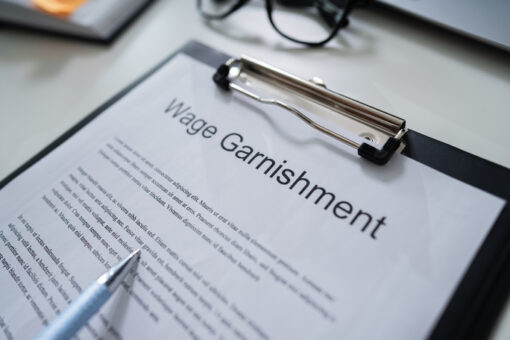
Are you dealing with wage garnishment? Have you decided that filing for bankruptcy would be the best way to handle it? If so, we strongly suggest that you talk to a bankruptcy attorney before you decide what to do next. Keep reading to get the basics or call The Law Offices of Paul Y. Lee directly at 951-755-1000 for a free consultation.
Filing for Bankruptcy is Likely the Fastest and Most Efficient Way to Stop a Wage Garnishment
First things first – your instincts are correct. Filing for bankruptcy will likely be the best way to stop a garnishment. Other options, such as working out settlement agreements with creditors, are likely to leave the garnishment in place while you are negotiating. If they are garnishing a significant amount, then your creditor has a lot more power than you do.
Bankruptcy Immediately Stops Garnishments
As soon as you file for bankruptcy, a court injunction is in place. It is referred to as an “automatic stay,” and it creates a legal stop between you and your creditors. They cannot take any collection actions against you. They cannot even call you. They certainly cannot continue to garnish your wages. As soon as your case is filed, your bankruptcy attorney will contact the sheriff, your employer, and anywhere that your accounts were frozen to stop all collections against you.
Chapter 7 Bankruptcy and Garnishments
Filing for bankruptcy will immediately stop existing garnishments, but the type of bankruptcy you file will impact what happens next. Chapter 7 is the most common type and is generally what most people think about when they think about bankruptcy. If you qualify, it will eliminate most of your debt. That includes personal loans, medical bills, and credit card debt.
However, any debt that is not dischargeable, such as a student loan debt, cannot be garnished while in bankruptcy, but garnishments can resume when bankruptcy is over.
Chapter 13 Bankruptcy and Garnishments
Chapter 13 reorganizes your debts. When you file for this type of bankruptcy, you will propose a plan to pay back your creditors. This will stop all wage and bank garnishments, and you will have a way to pay the debt that is not dischargeable. This process will go through a court-appointed trustee who will determine how and when your creditors are paid.
If you have additional questions about bankruptcy and are ready to start working with an experienced bankruptcy attorney, then we welcome your call to The Law Offices of Paul Y. Lee at 951-755-1000
. Call now, and we can answer your questions and help you find the right path toward financial freedom.

